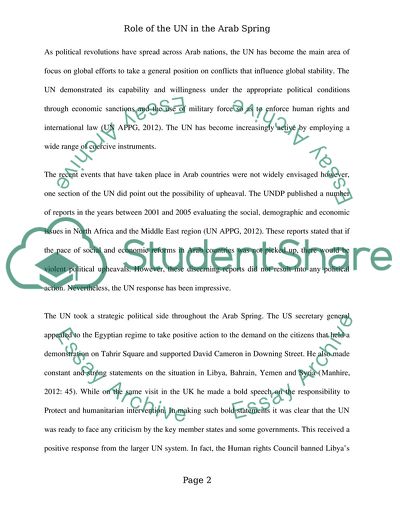Cite this document
(Role of the UN in the Arab Spring Assignment Example | Topics and Well Written Essays - 1250 words, n.d.)
Role of the UN in the Arab Spring Assignment Example | Topics and Well Written Essays - 1250 words. https://studentshare.org/politics/1828973-what-is-the-role-of-united-nation-during-arab-spring
Role of the UN in the Arab Spring Assignment Example | Topics and Well Written Essays - 1250 words. https://studentshare.org/politics/1828973-what-is-the-role-of-united-nation-during-arab-spring
(Role of the UN in the Arab Spring Assignment Example | Topics and Well Written Essays - 1250 Words)
Role of the UN in the Arab Spring Assignment Example | Topics and Well Written Essays - 1250 Words. https://studentshare.org/politics/1828973-what-is-the-role-of-united-nation-during-arab-spring.
Role of the UN in the Arab Spring Assignment Example | Topics and Well Written Essays - 1250 Words. https://studentshare.org/politics/1828973-what-is-the-role-of-united-nation-during-arab-spring.
“Role of the UN in the Arab Spring Assignment Example | Topics and Well Written Essays - 1250 Words”. https://studentshare.org/politics/1828973-what-is-the-role-of-united-nation-during-arab-spring.


